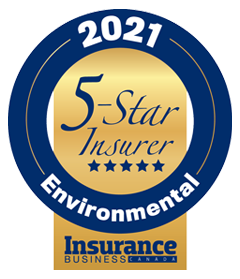
Site & Premises Liability
5-Star Awards 2021: Environmental Insurance
Site/premises liability insurance covers owners from premises liability risks such as accidents or injuries on their site.
5-Star Site & Premise Liability Insurers & MGAs
- Beazley
- Berkley Canada
- Burns & Wilcox
- Chubb
- Intact Insurance
- Markel Canada
- Premier Group
- Travelers Canada
- Victor Canada
What is site and premises liability insurance?
Site and premises liability insurance covers property owners and operators for injuries resulting from unsafe or dangerous conditions on the property. Cases of site and premises liability happen in almost every kind of open space or structure: construction sites, swimming pools, slips and falls, criminal and animal attacks, inadequate security, falling equipment, and fires.
What an injured party has to prove after an incident on an owner’s or company’s premises varies depending on the state. Usually, though, the injured party must prove that the defendant occupied, leased, or owned the property; that the defendant was negligent; that the injured person was harmed; that harm resulted from the owner’s negligence.
What is the difference between premises liability and personal liability?
General liability insurance includes various kinds of insurance, usually covering damage to other person’s property; bodily injury to a third-party during work; and personal injury, like accidental copyright infringement, for instance. General liability insurance does, however, overlap with site and premises liability insurance. As an example, if a visitor trips and falls in a business’s workspace, both the owner’s general liability insurance and premises liability insurance could cover the cost of the injured person’s medical fees. Having a separate premises liability insurance policy, however, contains a higher level of coverage than a general liability insurance policy.
How to know if you have enough premise liability coverage?
When selecting site and premises liability insurance coverage, you should know what you are searching for, and consider the following points before purchasing a policy:
-How much coverage do you require? You may be looking for a policy with a coverage nearing $500,000, or closer to $1,000,000, or perhaps more;
-Can you pay each month, or are you required to pay for a year’s worth of premiums all at once?
-Is the claims process convenient and timely?
How reliable is the insurance company? You should be searching for companies that boast a high rating from a ratings firm like A.M. Best, for instance.
What does premises liability protect against?
Site and premises liability insurance protects against accidents that occur on an owner’s business property. Some examples of the kinds of accidents or injuries this type of coverage protects against are as follows:
-A small business owner’s office is in his or her home, where the owner lives with their pet dog. One day, the dog is off its leash and bites the client;
-A client comes to a small business owner’s office and slips on the polish floor, injuring their knee; and
-A delivery person hurts their back after tripping and falling on loose stones on a path leading to the owner’s office door.
The business premises included in premises liability insurance includes your office parking lot; the path leading to the workspace; land or the garden on the property; and the business’s workshop, office, studio, and other workspaces. If you rent the premises, you are responsible for injuries that occur on the premises.
However, a business may not always be liable when a person suffers an injury on the company’s premises. For example, if your company is working in a shared building, your business typically will not be held liable for injuries that occur in the common areas, i.e., entrances and hallways. For businesses that rent office space from a landlord, it is crucial to understand the areas the renter is liable for and which areas the landlord is responsible for. The person who suffers the injury is important to note, as well. A thief who injures themselves while making away with office equipment, for example, will not require coverage protection against. The company would be liable, however, if an invited guest like a client or licensee (i.e., courier) is injured on the premises.
Keep up with the latest news and events
Join our mailing list, it’s free!
